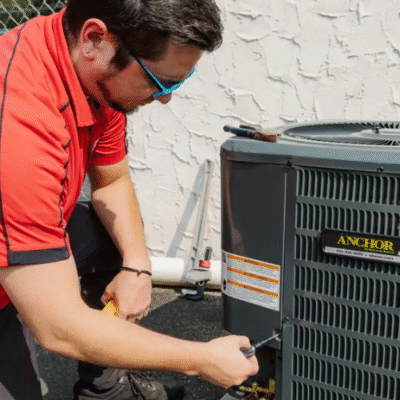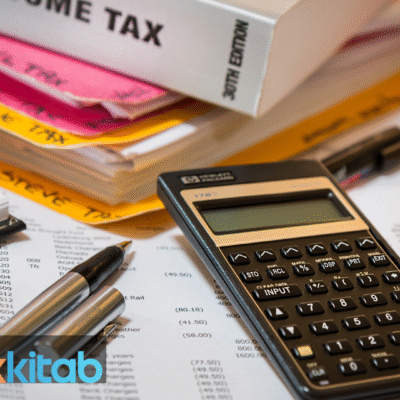In a rapidly advancing country like the United Arab Emirates (UAE), logistics and utility infrastructure play a vital role in supporting urban development, industrial growth, and environmental sustainability. Among the many essential components in this framework, sewage tankers and fuel tanker trailers stand out as critical assets. They ensure efficient waste management and energy transportation, respectively, serving municipalities, construction sites, industrial zones, and remote areas.
This blog explores the significance, types, applications, and key features of Sewage Tanker UAE and fuel tanker trailers in the UAE, and highlights why these specialized vehicles are integral to the country’s infrastructure and logistics ecosystem.
The Role of Sewage Tankers in the UAE
The UAE is known for its modern cities, including Dubai, Abu Dhabi, and Sharjah, where proper waste management systems are essential. In areas where direct sewer connections are not available, sewage tankers are indispensable.
1. Efficient Waste Collection and Disposal
Sewage tankers are primarily used to collect and transport liquid waste from residential, commercial, and industrial areas to sewage treatment plants. In the UAE, where new construction projects often occur in underdeveloped areas, sewage tankers provide a reliable interim solution for waste management until permanent sewer lines are established.
These tankers help in:
- Emptying septic tanks in villas and construction sites.
- Cleaning portable toilets at events and temporary sites.
- Collecting industrial effluents for safe disposal.
2. Environmental and Public Health Safety
By transporting wastewater safely, sewage tankers help prevent contamination of the environment and groundwater. They also mitigate the risk of diseases caused by exposure to untreated sewage. In desert climates like the UAE’s, where water conservation and hygiene are critical, this function is even more vital.
3. Customization and Capacity Options
In the UAE, sewage tankers come in a wide range of sizes—from small-capacity vehicles suitable for residential services to large-capacity tankers used in industrial zones or remote construction sites. Tank materials often include stainless steel, mild steel, or fiberglass-reinforced plastic, depending on the application. Some are mounted on trailers, while others are built directly onto trucks, offering flexibility in usage.
The Functionality of Fuel Tanker Trailers in the UAE
Just as waste management is critical to health and hygiene, fuel transportation is essential to powering the UAE’s industries, construction activities, transportation systems, and remote installations. Fuel tanker trailers serve as the backbone of fuel distribution across the nation.
1. Essential for Fuel Distribution
Fuel tanker trailers in the UAE are used to transport petrol, diesel, aviation fuel, and other petroleum-based liquids from refineries and depots to fuel stations, construction sites, farms, airports, and industrial facilities. Given the UAE’s vast network of roads and deserts, these tankers offer mobility and reach that pipelines cannot.
These trailers support:
- Supply chain continuity for petroleum products.
- Emergency fuel delivery during outages or in remote regions.
- On-site refueling for heavy machinery at construction sites.
2. Compliance with Safety Standards
Fuel is a highly flammable and hazardous substance. Fuel tanker trailers in the UAE must comply with stringent local and international safety standards. These include explosion-proof features, pressure relief valves, anti-spill designs, and robust braking systems.
The design of fuel tankers prioritizes:
- Leak prevention and containment.
- Fire resistance and emergency shut-off systems.
- Proper insulation and compartmentalization to transport different fuel types safely.
3. Versatile Configurations and Sizes
Like sewage tankers, fuel tanker trailers are available in multiple sizes and configurations. In the UAE, common capacities range from 10,000 to 50,000 liters, depending on the size of the truck or trailer. Some trailers feature multiple compartments to carry different types of fuel in one trip.
Aluminum and stainless steel are popular materials for fuel tankers due to their corrosion resistance and durability. The trailers are often equipped with meters, hoses, pumps, and remote control systems to facilitate accurate delivery and efficient unloading.
Technological Advancements in Tanker Manufacturing
The UAE’s focus on innovation and sustainability is influencing the design and production of both sewage and fuel tankers. Advanced manufacturing techniques and the integration of smart technologies are transforming how these tankers operate.
1. Remote Monitoring and GPS Integration
Many modern sewage and fuel tankers are equipped with GPS tracking and remote monitoring systems. This allows fleet operators to:
- Track the vehicle’s location in real-time.
- Monitor load levels and discharge history.
- Enhance route planning and operational efficiency.
This technology is especially important in the UAE’s expansive terrain, where long distances and harsh weather can affect logistics.
2. Automation and Smart Controls
Automation in fluid discharge, pressure control, and even valve operations is becoming standard. Smart tankers reduce human error, speed up processes, and offer more precise fluid management. For example:
- Automatic shut-off systems in fuel tankers help prevent spills.
- Level sensors in sewage tankers prevent overfilling.
3. Eco-Friendly Designs
With growing attention on sustainability, tanker manufacturers are also focusing on reducing environmental impact. Lightweight materials, fuel-efficient chassis, and emission-reducing engines are being incorporated to align with the UAE’s environmental goals.
Regulatory Framework and Certification
Operating sewage and fuel tankers in the UAE requires strict adherence to regulatory guidelines. These are enforced to ensure public safety, environmental protection, and efficient logistics.
1. Licensing and Approvals
Tankers must be approved by relevant municipal bodies and regulatory agencies. For fuel tankers, additional approvals may be required from civil defense authorities and energy departments.
2. Periodic Inspections
Regular inspections ensure the tankers are fit for operation. These inspections cover:
- Structural integrity of the tank.
- Functionality of valves, meters, and discharge systems.
- Brake systems and tire conditions.
3. Operator Training
Drivers and operators are also required to undergo specialized training. Handling hazardous materials, especially fuel, necessitates a thorough understanding of emergency protocols and safe driving practices. In the case of sewage tankers, operators must understand hygiene and disposal regulations.
Industry Demand and Future Outlook
The UAE’s booming real estate, infrastructure, and energy sectors are creating sustained demand for specialized transportation vehicles like sewage tankers and fuel tanker trailers. As cities expand and construction continues across the Emirates, the need for these tankers is expected to grow.
1. Demand in Urban and Remote Areas
Urban centers require a steady flow of fuel and waste management services. Meanwhile, remote construction and oil exploration sites rely heavily on tanker-based logistics. In both cases, having reliable and compliant tankers is crucial for uninterrupted operations.
2. Integration with Smart Cities
As the UAE pushes toward smart city models, including projects like Dubai 2040 Urban Master Plan, tanker fleets will likely become more integrated with digital platforms. Data-driven management of fuel supply and sewage disposal will streamline operations, reduce waste, and enhance sustainability.
3. Local Manufacturing and Customization
To meet growing demand and regulatory requirements, many manufacturers in the UAE are focusing on localized production and customization. This ensures faster turnaround times, easier maintenance, and better alignment with the specific climatic and regulatory conditions of the region.
Conclusion
Both sewage tankers and Fuel Tanker Trailer UAE are essential components of utility and logistics landscape. They ensure the smooth operation of cities, industries, and construction zones by handling two of the most crucial substances—wastewater and fuel.
Their importance goes beyond transportation. They contribute to environmental protection, energy distribution, and public health. With advancements in design, technology, and safety, these tankers are becoming smarter, safer, and more sustainable.
In a country driven by growth and innovation, investing in high-quality, compliant, and efficient sewage tankers and fuel tanker trailers in the UAE is not just a necessity—it’s a commitment to progress.



